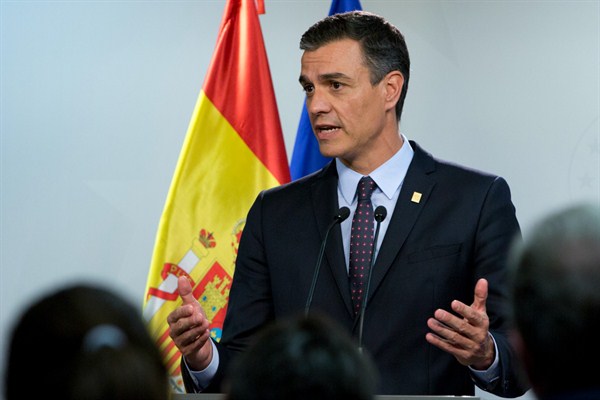MADRID—Spaniards are not happy that their country is headed for its fourth election in four years. According to a recent poll in El Pais, more than 90 percent of respondents said they felt either disappointment, anger or worry at the prospect of another vote. But the parliament that was chosen in April still dissolved Monday at midnight after the leaders of its main parties were unable or unwilling to come to an arrangement that would allow one of them to form a government, triggering an election on Nov. 10.
While Sept. 23 was the final deadline for any sort of Hail Mary, it was clear the negotiations had already failed a week earlier, when King Felipe VI announced that he couldn’t put forward any candidate for an investiture vote in parliament, since the parties were deadlocked. Acting Prime Minister Pedro Sanchez of the center-left Spanish Socialist Workers’ Party put the blame squarely on the three other main parties—the old-guard, conservative Popular Party and two recent upstarts, leftist Podemos and centrist Ciudadanos—for failing to support his candidacy. “I have tried by all means,” he said, “but they have made it impossible for us.”
The Socialists may have won the most votes in April, but they didn’t get the majority in parliament they needed to govern without a coalition, or an agreement with one or more of the other parties. As Spain’s traditionally two-party system, long dominated by the Socialists and the Popular Party, has fractured into four and even five parties over the past five years, difficulties in coming to governing agreements have mostly been chalked up to the fact that Spanish parties simply aren’t used to such haggling. By now, however, party leaders have had three opportunities to hone their negotiation skills and get used to the new reality. According to another poll in El Pais, only 16 percent of voters would like to go back to the two-party system, while more than 83 percent agree that the parties “must face the new multiparty scenario and get used to coming to agreements.”

